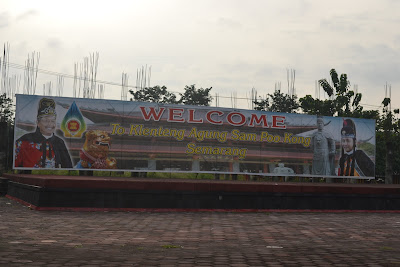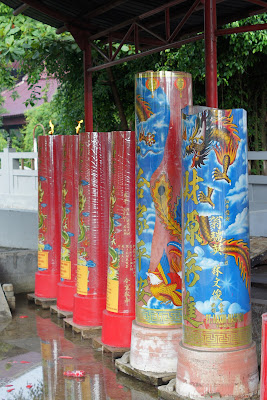Jakarta Post, Thursday January 17, 2013
Weakened
Women in Today’s Indonesia
BY
ROSITA TANDOS
Albany, New York
H
|
istorically,
women played an important role in our nation’s fight for independence. Today,
women continue to be heavily involved in the development of our country. At
home, women play a special role in the lives of their children as they are
their first source of knowledge.
Despite all of the special skills women have, they have often become the target of jokes and cynicism in social life, public policy and in careers. Ironically, provocative, gender-bias statements have often come from respected representatives of the people. They disrespect women and unconsciously laugh at their failures to protect themselves, a set-back in the fight for equality.
Despite all of the special skills women have, they have often become the target of jokes and cynicism in social life, public policy and in careers. Ironically, provocative, gender-bias statements have often come from respected representatives of the people. They disrespect women and unconsciously laugh at their failures to protect themselves, a set-back in the fight for equality.
The uproar stemming from a Supreme Court
justice candidate who said that he would not consider handing down a death
sentence to a rapist because rape might be consensual, is just another example
of the weakness of women in the social structure.
Violence against women is shown in the
media almost every day. Individual, cultural, institutional and/or structural
oppression continues to push inequality and injustice for women.
Indonesian women are surrounded by at
least three aspects that have become major sources of their daily problem.
First, patriarchal ideology influences everyday life. The traditional and
patriarchal family places women lower than their male counterparts, such as
when it comes to accessing higher education, decent jobs and exercising their political
right. Staying at home without making any significant financial contribution
often prompts poor parents to arrange early marriages for their daughter.
Second, poverty is another common issue
of developing countries. Data from the Central Statistics Agency (BPS) shows
that about 30 million Indonesians still live in poverty. Using the United
Nations standard of poverty (US$2 per person-per day), the poverty-stricken
population will reach 130 million. The sex ratio is 101 male and 100 female and
70 percent of the poor are women.
Inaccessible education and training
skills have forced women to enter informal, low paying, even “dirty” jobs.
Therefore, it cannot be denied that resource quality improvement for women
remains unfinished, especially for government officials.
Third, globalization policies have
transformed women into a commodity, intertwined, with family and state roles.
Feminization of domestic work and the global labor market channels their
“specialty” or skills to serve families and countries by working as overseas
domestic workers. In return, they are considered heroines for contributing
financially to both parties.
Transnational domestic work business
involves many actors and billions of dollars. But, female migrant workers are
still at risk and vulnerable to abuse and human rights violations. If the
authorities are willing to address the problem, they should guarantee the
protection of a woman’s right to health and safety in workplaces. In addition,
the government should raise their status from unskilled to skilled workers to
be protect them under international labor laws. Training to improve their
skills and help them adjust to a new life should be mandatory prior to their
departure.
The question then is: How can we solve
these complicated conditions experienced by women and other marginalized
groups? Lots of programs and policies have been implemented to improve human
capacity. However, violations keep occurring due to lack of control, commitment
and cooperation among stakeholders.
As Indonesian culture values are tightly
bound by kinship, family should be considered a fundamental partner in finding
solutions. To achieve this, we need programs to help strengthen families, to
help them increase their incomes and heighten awareness among parents so that
their children can have a better future. Of course, the voices family members
should be heard and accommodated during the process of state intervention.
Communities have their own leaders who
guide their members’ social, religious, economic and politic lives.
Additionally, community and religious leaders should improve their values,
fight for social justice and have equality for all groups. They are supposed to
serve as spokesmen for the people’s needs, interest and concern, regardless of
their gender, ethnicity, class, religion, and organizational affiliation. If
this is done, a sense of community and resilience will develop and work
effectively in response to any problems that arise in their daily lives.
Finally, the government, NGOs and the
private sector should work together to support efforts to improve people’s
lives. Engaging families, the youth and communities as partners will improve
the effectiveness of public programs and services.
Creating one-stop services or
integrative service for assistance can be realized through inter-professional
leadership, collaboration and partnership. Applying this approach will help
public services, avoid overlapping programs and simultaneously improve the
efficiency of public programs and policies.
The writer is a PhD candidate at the school
of social welfare State University of New York in
Albany, US
and
and
a lecturer at Syekh Nurjati State Islamic
Institute (IAIN) in Cirebon
West Java.
West Java.























































